The printed word was very important for spreading the ideas of the liberation front and encouraging people in the struggle against the occupying forces. In southern Primorska all printing was done on cyclostyle machines. These were used to duplicate propaganda material – leaflets, newspapers, liberation bulletins, pamphlets, and so on. Up until the capitulation of Italy, two clandestine cyclostyle printing shops operated in the area of Slovene Istria, the Brkini Hills and Ilirska Bistrica – in Slovene Istria the Southern Primorska printing shop, later renamed Naš Dom; and the Bistra printing shop for the needs of the Ilirska Bistrica district. Naš Dom continued operating after the capitulation and was renamed Snežnik. In April 1944 a further clandestine printing shop, called Žena (“Woman”) was set up for the needs of the women’s organisation. The Brkini district committee of the liberation front founded the Slavnik printing shop in March 1944, while the Morje (“Sea”) printing shop operated on the outskirts of Trieste from December 1943 onwards, later moving into the city itself.
In June 1944 the clandestine printing shops in Primorska underwent a reorganisation. From now on the cyclostyle printing shops and Partisan printing presses came under the aegis of the regional printing shop of the KPS for the entire Slovene Littoral. For reasons of secrecy, the printing shops were henceforth referred to by letters and numbers. Snežnik became F-35, Slavnik was N-43 and Morje was O-44.
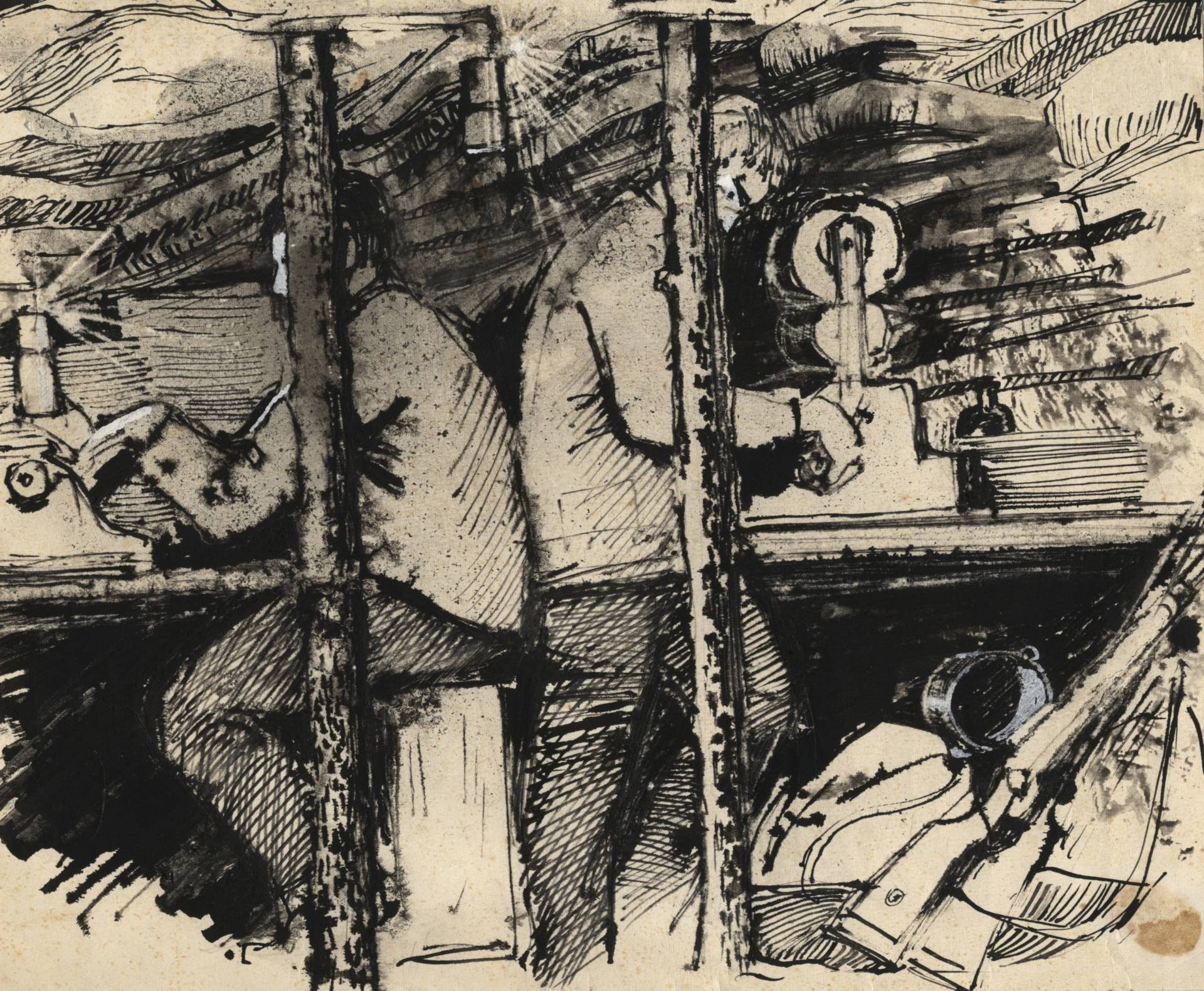 In the bunker of the Naš Dom clandestine printing shop. The sketches are said to be the work of Jože Pohlen.
In the bunker of the Naš Dom clandestine printing shop. The sketches are said to be the work of Jože Pohlen.
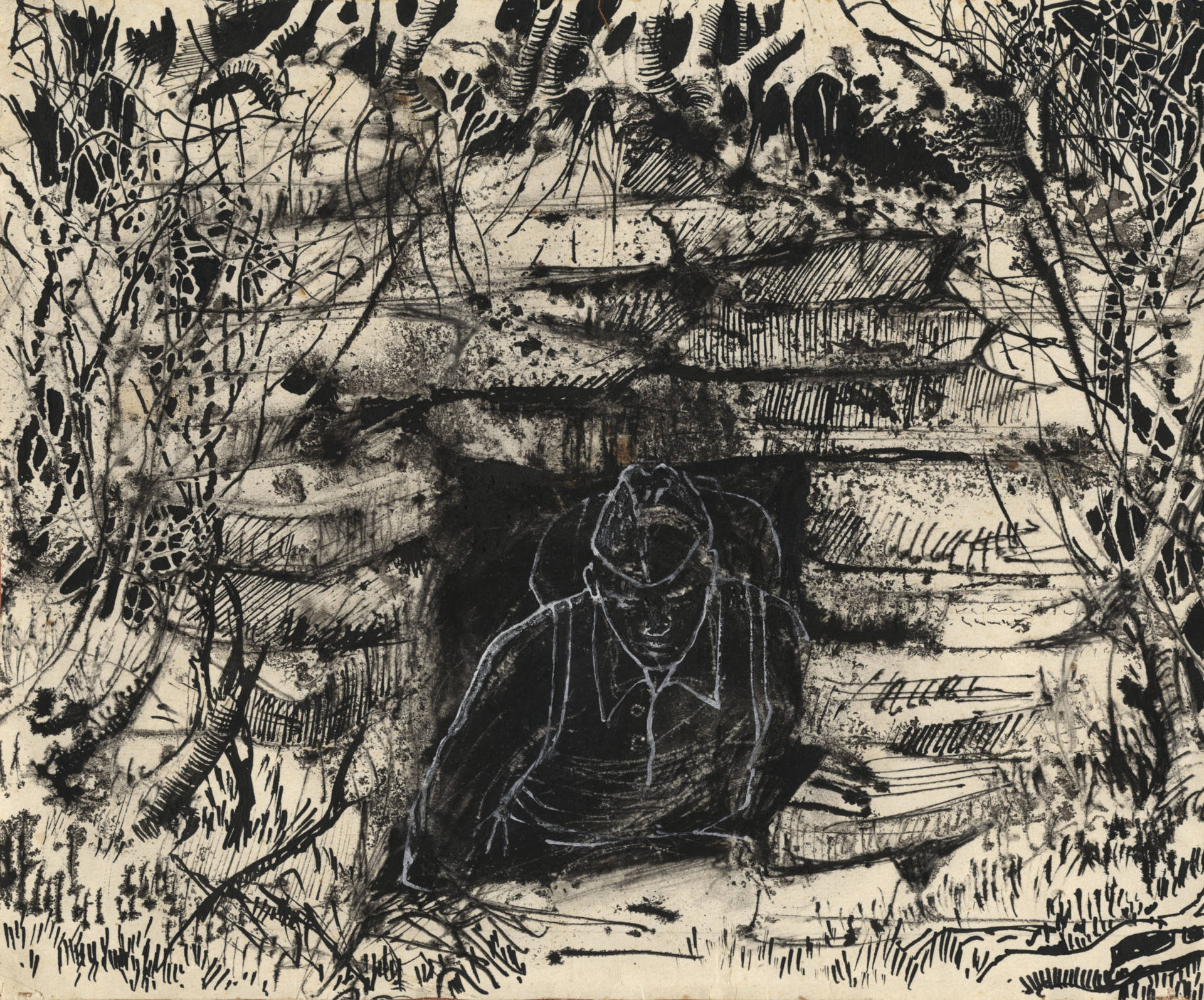 In the bunker of the Naš Dom clandestine printing shop. The sketches are said to be the work of Jože Pohlen.
In the bunker of the Naš Dom clandestine printing shop. The sketches are said to be the work of Jože Pohlen.
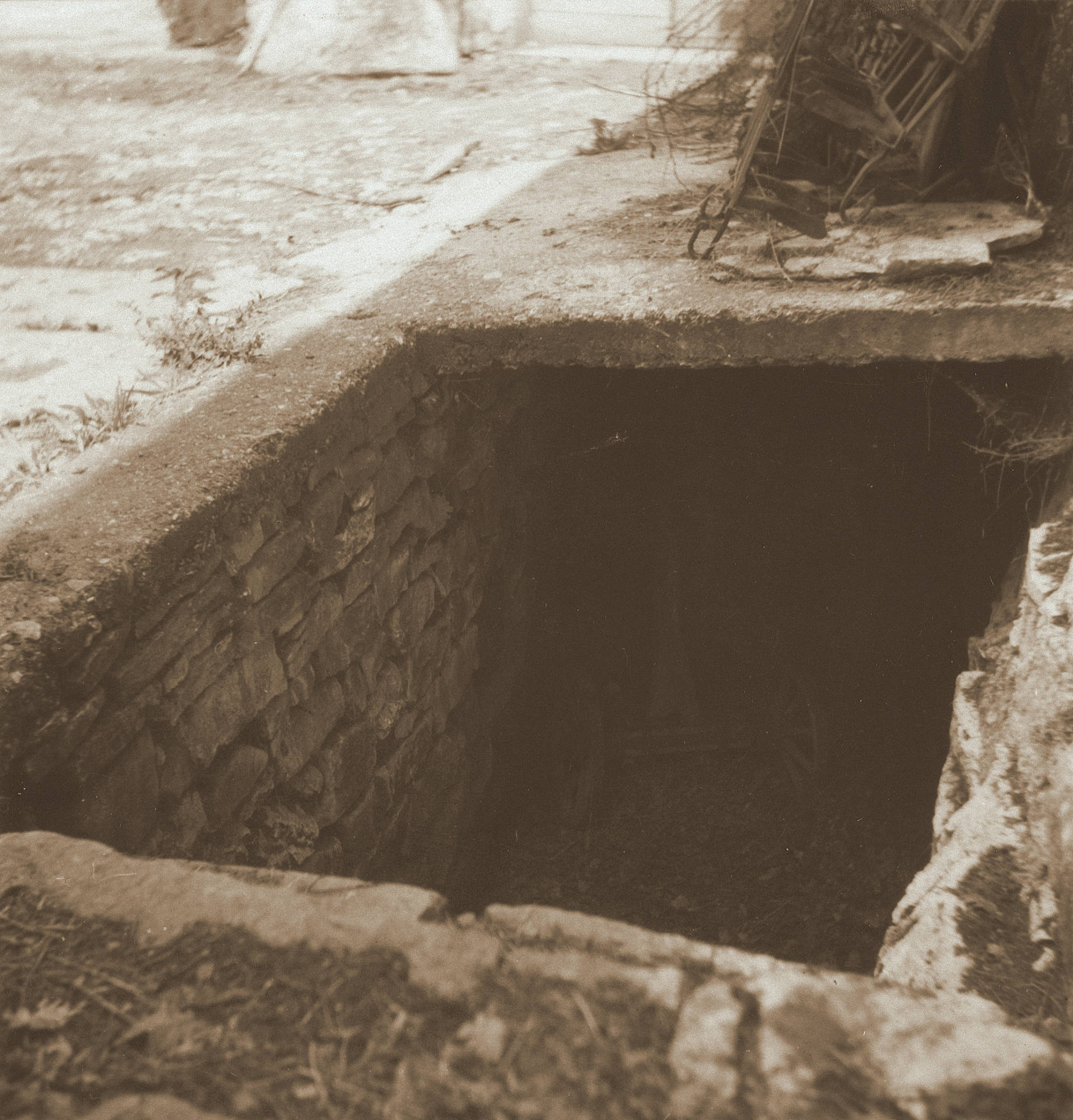 Entrance to the bunker of the Snežnik printing shop at the home of the Klabjan family in Osp.
Entrance to the bunker of the Snežnik printing shop at the home of the Klabjan family in Osp.
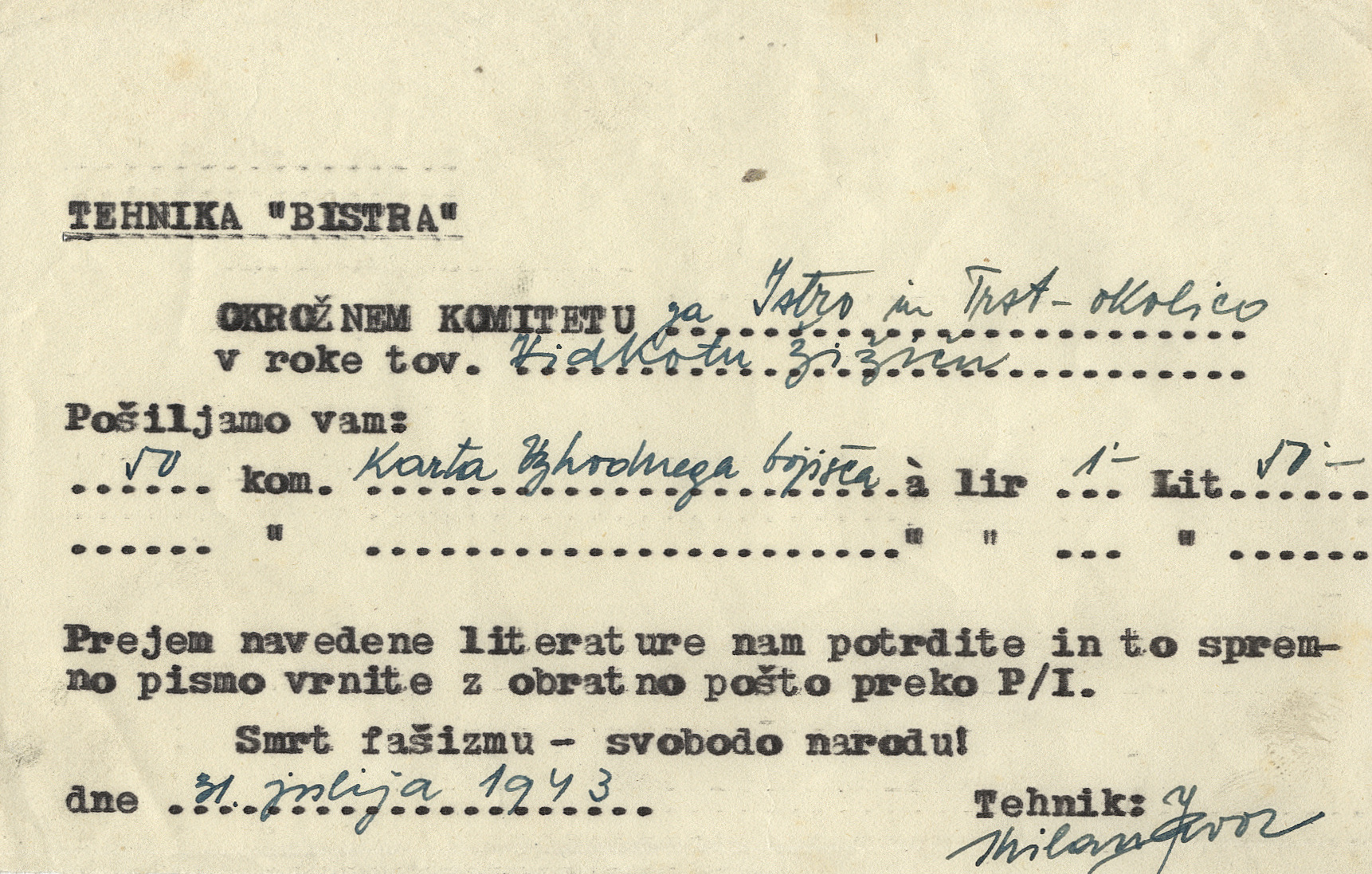
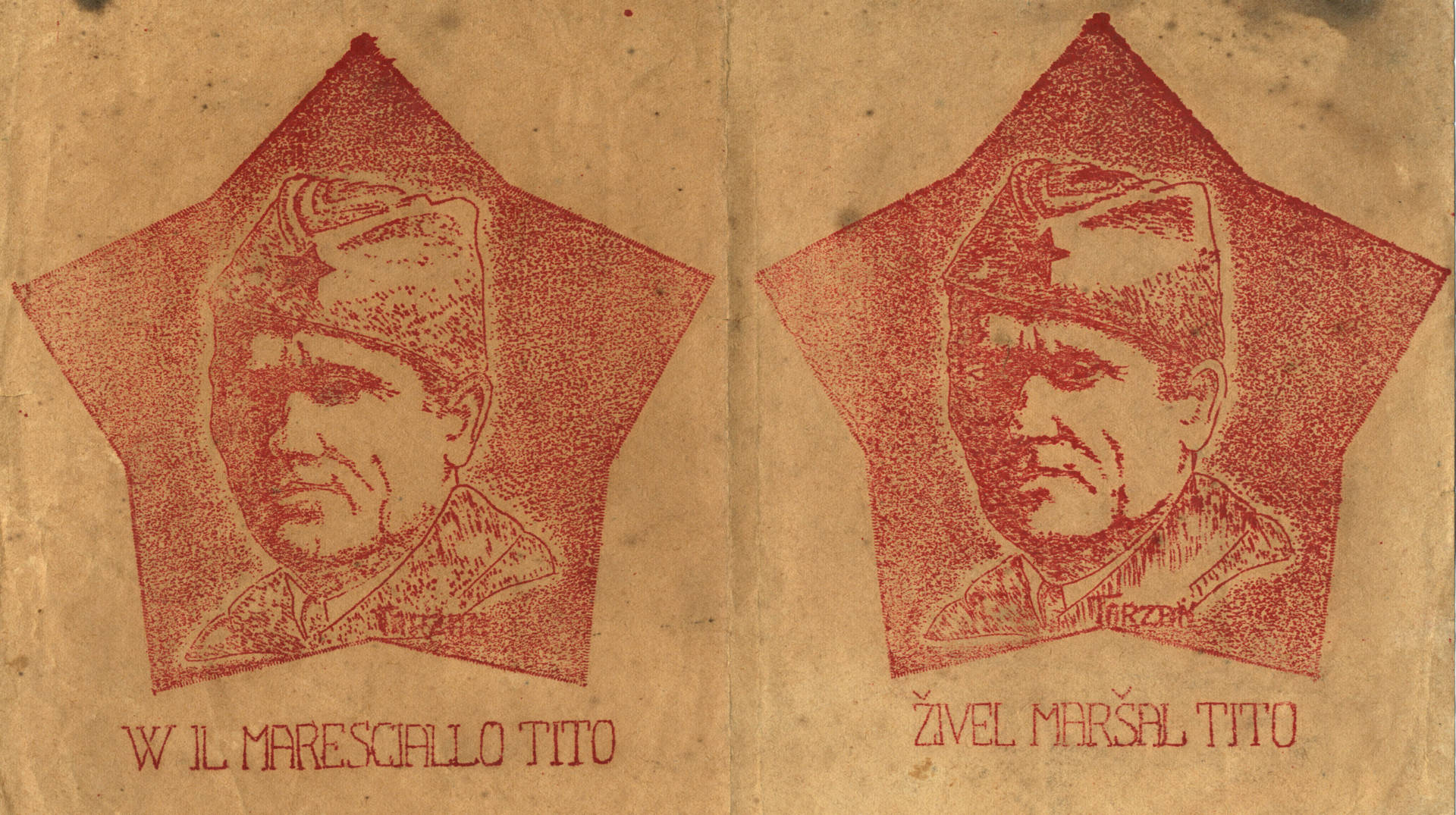 The handbill was made on a cyclostyle machine in the Morje printing shop.
The handbill was made on a cyclostyle machine in the Morje printing shop.
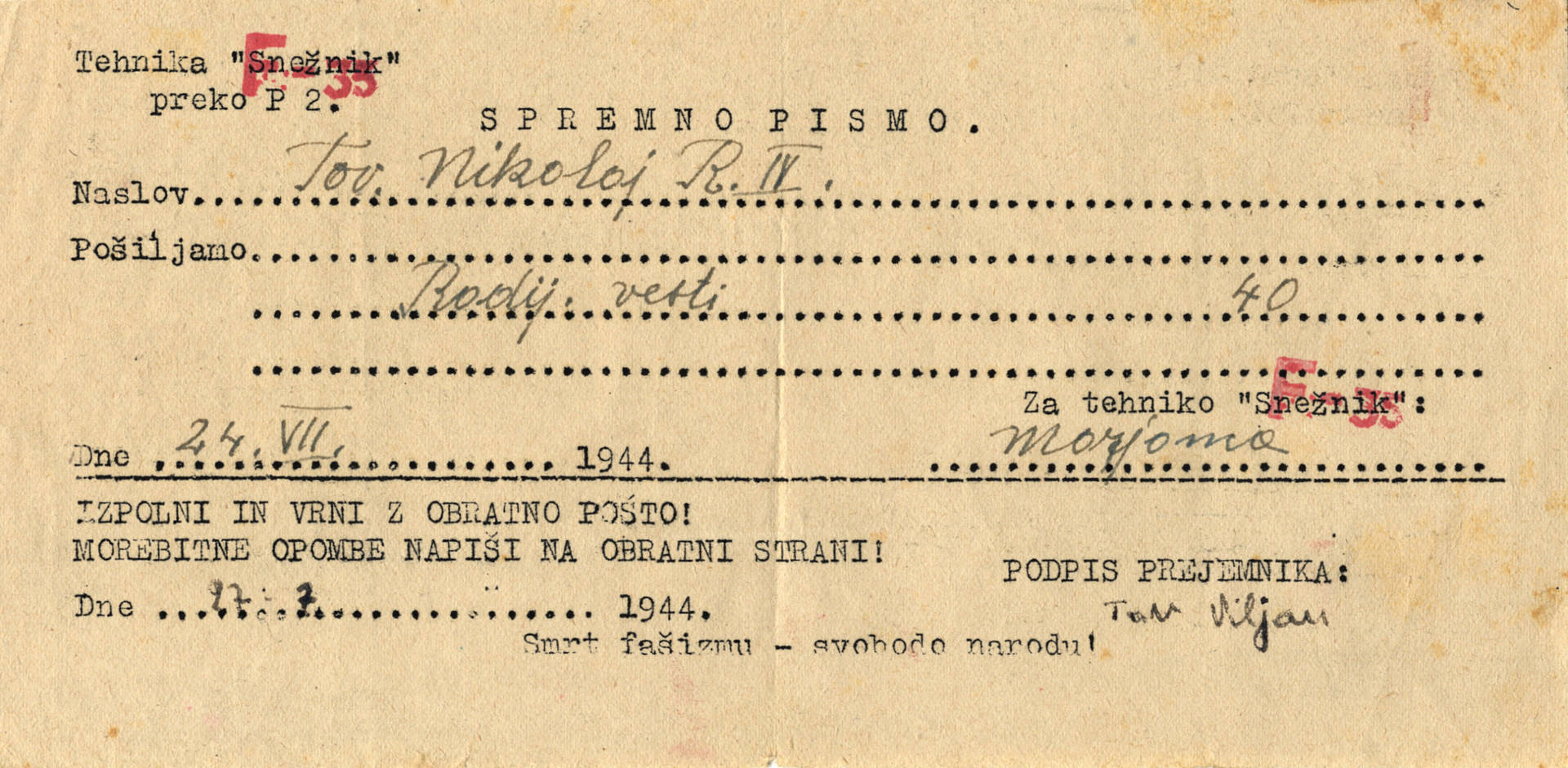
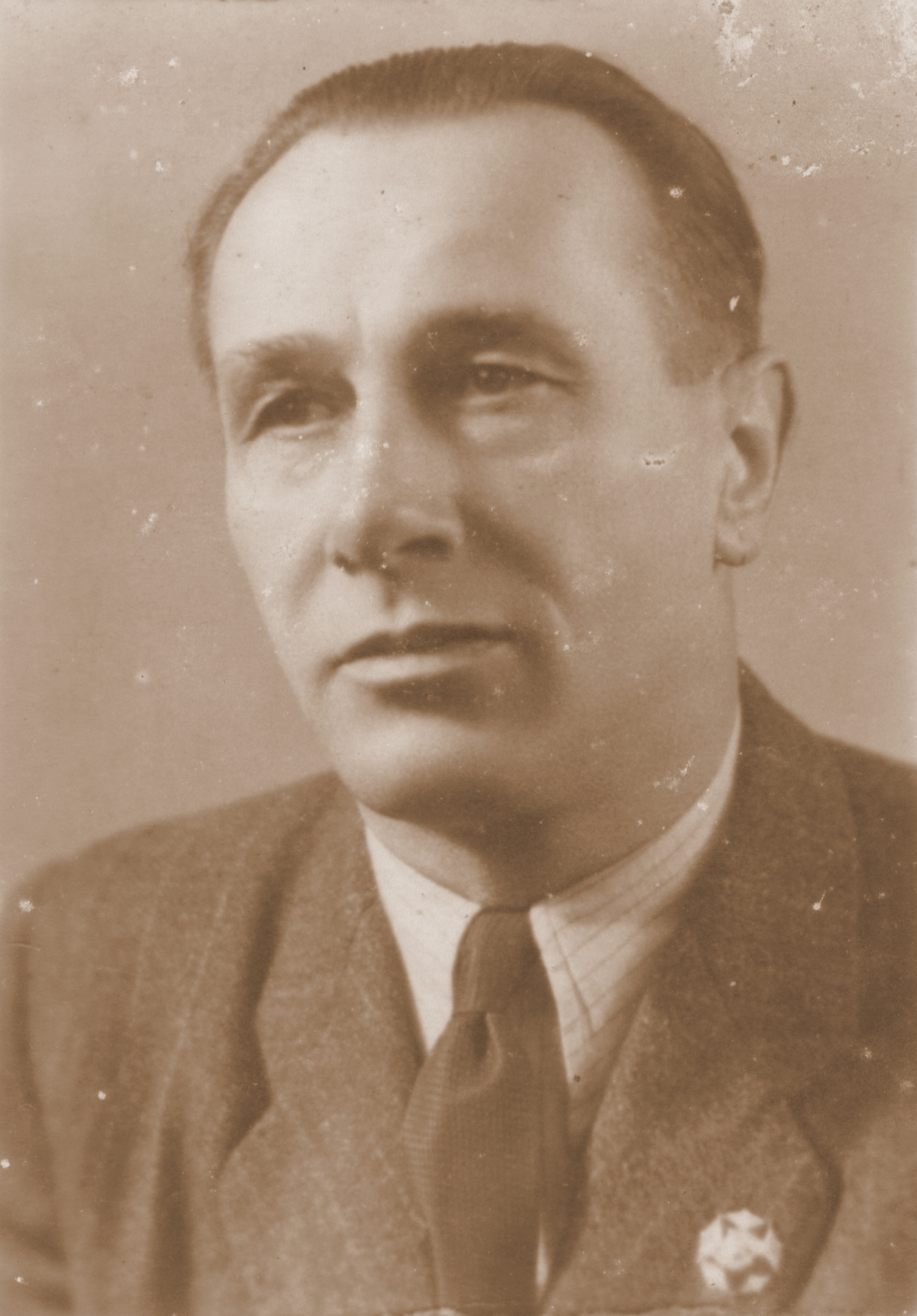 Justin Miklavec, alias Očka, who ran the Snežnik printing shop from October 1943 until June 1944.
Justin Miklavec, alias Očka, who ran the Snežnik printing shop from October 1943 until June 1944.
 Bruno Stepan, alias Željko, printing shop courier who delivered the material produced by the printing shop throughout its existence.
Bruno Stepan, alias Željko, printing shop courier who delivered the material produced by the printing shop throughout its existence.
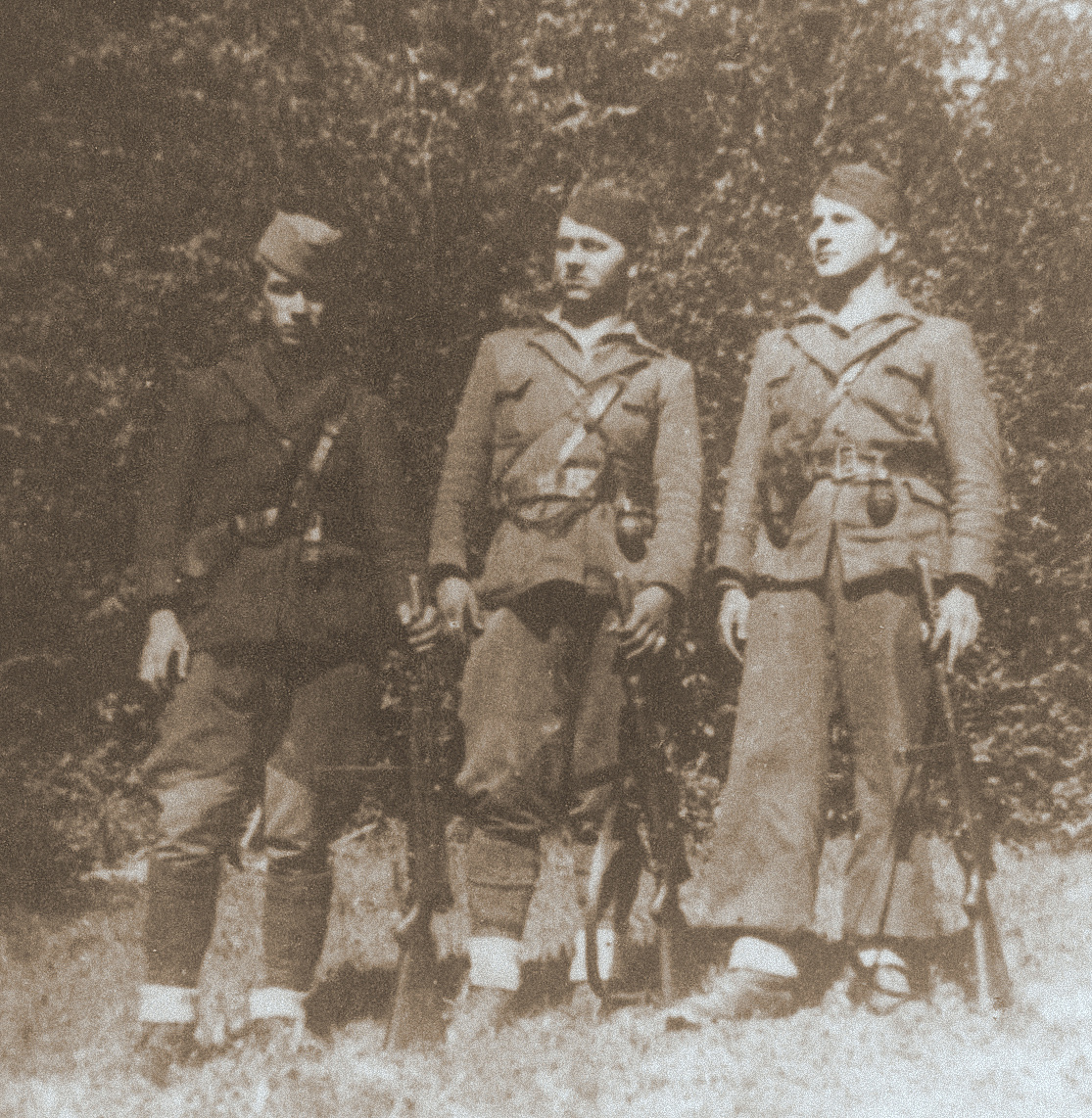 Printed propaganda materials were delivered by couriers.
Printed propaganda materials were delivered by couriers.